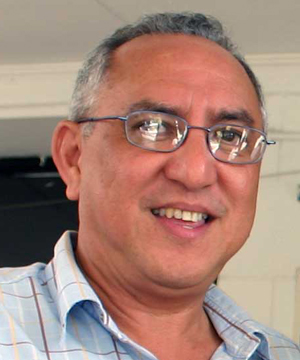

 This newspaper can sensationally reveal that Paul Chow, leader of the Seychelles Democratic Party, pleaded with the SNP leader not to break the alliance. Chow sent a letter to Ramkalawan on Monday 29th October 2007, before the Executive Committee of the SNP convened to decide the issue.
This newspaper can sensationally reveal that Paul Chow, leader of the Seychelles Democratic Party, pleaded with the SNP leader not to break the alliance. Chow sent a letter to Ramkalawan on Monday 29th October 2007, before the Executive Committee of the SNP convened to decide the issue.
In his letter, Chow stated, “Notwithstanding the events leading up to this mutual disappointment, I feel it is necessary for the two parties to meet at the highest level as soon as possible, to thrash out a working arrangement with respect to the National Assembly and come to a mutual agreement on how to tackle various issues that may arise in the future where our two parties may have divergent views, in the best interest of both parties, within the framework of our electoral pact that has taken us this far.” Chow last ditched attempt to save the alliance was rebuffed by the SNP leader who had by this time already made up his mind and was intent on convincing his Executive Committee that this was the best course of action to take.
Ramkalawan did not even have the decency to grace Chow with the courtesy of a reply to his letter. In his letter Chow said, “I would like to propose a delegation of three persons on each side led by us as party leaders, and that the meeting is held at the office of the Leader of the Opposition at the National Assembly.” This letter shows the clear intention and desire of Mr. Paul Chow to save the alliance at all cost albeit at the eleventh hour.
Chow was in fact replying to a letter written by the SNP leader on the 22nd October 2007 in which Ramkalawan had expressed his “disappointment” over the position taken by Chow on the One China Two Systems Policy; a position diametrically opposite to that taken by Ramkalawan in the National Assembly. It seems that an attitude of mistrust and suspicion was rapidly manifesting itself between the two opposition parties and Ramkalawan had decided to literally pull the trigger first.
Ramkalawan stated in his letter of complaint to Chow “The development over the one–China policy has shown a breakdown in the trust and reliability that must be expected from members of our Assembly team, and the lack of openness which is necessary for political cooperation between the SNP and DP.” The SNP leader concluded his letter by saying: “I put on record my disappointment over this situation.”
However, things appeared to have taken a turn for the worse when the SBC dedicated a large chunk of its 8.00 O’clock news on the Thursday evening following the sitting of the Assembly, to report on the debate on the Franco-Seychelles agreement which provided for the French navy to assist in policing our Exclusive Economic Zone (EEZ). The SBC news report gave
SNP leader Wavel Ramkalawan was one of the three SNP members who spoke in the debate. In his intervention, he raised the issue of the sovereignty of Tromlin Island which is claimed by France, but contested by Madagascar and Mauritius since the three countries’ EEZ overlaps in that part of the southern Indian Ocean. The SNP leader took the view that his party could not support the agreement because if they were seen siding with the French, it would upset their regional friends. Presumably, France is not a regional friend of the SNP.
The SNP’s sudden change of position came as a surprise to Elizabeth, who maintained that this was a deliberate manoeuvre to embarrass him. According to Elizabeth, during the morning consultation with other opposition members, they had all agreed to unanimously vote in favour of ratification. The change came during lunch break when Elizabeth was not present. When the latter arrived in the chamber in the afternoon, debate had already started and he was the first speaker on the opposition bench.
Elizabeth, however, maintained that he would have voted for the agreement regardless since he is of the view that it is in the national interest. In any case he said, under the agreement, the DP member in the Assembly was free to take any position on any issue that comes before the Assembly. In his SBC interview, however, Ramkalawan gave a novel reason for breaking up the alliance. He said that, after the vote where Elizabeth was seen voting with the SPPF, he could not trust the DP not to provide the SPPF the two-thirds majority they ostensibly want to make changes to the Constitution. The DP leader has described this argument puerile, hypothetical and conjecture politics without any merit, designed to cast doubt on the integrity of Frank Elizabeth.
Some observers of the Seychelles politics have advanced the argument that Ramkalawan was not pleased with the way SBC was giving Elizabeth coverage which, to his point of view, was at his expense. Others have argued that the alliance was broken up because the DP’s credibility was outperforming the SNP among the voters.
Whatever the real reasons for taking the decision to break up the alliance, the reality is that the SNP itself is now split over the issue. Almost everybody agrees that the decision was not in the best interest of the country as a whole and was a bad one for the opposition especially. The fact that DP has now decided to contest Ramkalawan’s decision before the Supreme Court, and has obtained an order of interim injunction against both Ramkalawan and Speaker Herminie to reinstate Mr. Frank Elizabeth in the National Assembly, has created an embarrassing political stalemate for the opposition.